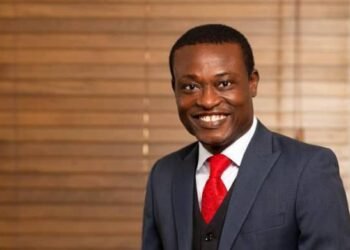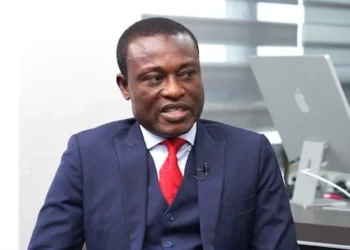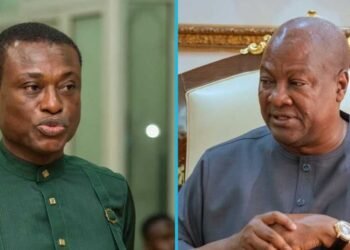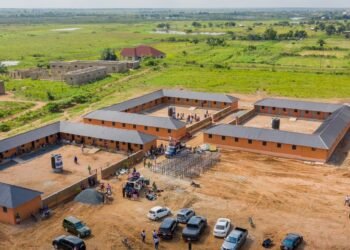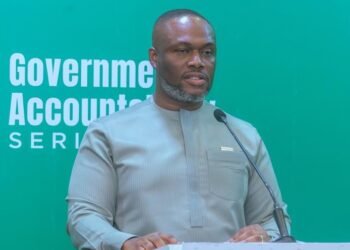Prof. Kwaku Azar Asare, a democracy and development fellow at CDD-Ghana, has raised concerns about the reinterpretation of double jeopardy in the ongoing trials of G. Afoko and S. Dondon, linked to the murders of Adams Mahama and Joseph Boakye Danquah Adu, respectively.
He explained that the issue stems from a strict reading of Article 19(7) of the Constitution, which bars retrial after acquittal or conviction, except by order of a superior court during appeal or review.
According to Prof. Azar, although both individuals have been tried by a competent court, neither has been acquitted nor convicted due to Article 19(2)(h), which requires a unanimous jury verdict in death penalty cases.
The state, with apparent court backing, argues that a non-unanimous verdict does not constitute a conviction or acquittal, thereby allowing for repeated retrials until a final verdict is reached.
“Justice Sowah’s enduring words in Tuffuor v Attorney-General offer vital guidance on constitutional interpretation: ‘The Constitution has its letter of the law. Equally, the Constitution has its spirit… Its language… must be considered as if it were a living organism capable of growth and development…’
“These words remind us that the Constitution must be interpreted purposively, ensuring justice, fairness, and efficiency, rather than reducing its provisions to technical formalities”.
Prof. Kwaku Azar Asare
Prof. Kwaku Azar emphasized that the presumption of innocence, enshrined in Article 19(2)(c) of Ghana’s Constitution, is a fundamental pillar of the justice system.

This principle ensures that individuals are considered innocent until proven guilty beyond a reasonable doubt.
However, he argued that allowing repeated retrials after non-unanimous verdicts undermines this principle, stressing that it grants the state, with its vast resources, the power to pursue multiple prosecutions until a conviction is secured.
This, Prof. Asare noted, shifts the burden onto the accused, subjecting them to repeated emotional, financial, and social hardship.
State’s Interpretation of Double Jeopardy Critiqued
Furthermore, Prof. Kwaku Azar Asare argued that the State’s interpretation, which suggests that jeopardy only attaches when a verdict is reached, is fundamentally flawed.
He asserted that jeopardy begins once a trial is underway — specifically, when the jury is empaneled and sworn in for a jury trial or when the first witness is sworn in for a bench trial. At this point, the individual’s liberty is already at significant risk.
“By attaching jeopardy when the jury is impaneled or the first witness is sworn, the law can ensure: [The] protection of fundamental rights by limiting state power; Fairness in prosecution by giving the state only one full and fair opportunity to meet its burden of proof.
“A non-unanimous verdict reflects reasonable doubt. At that point, the accused’s liberty must be protected, not subjected to an endless cycle of trials”.
Prof. Kwaku Azar Asare
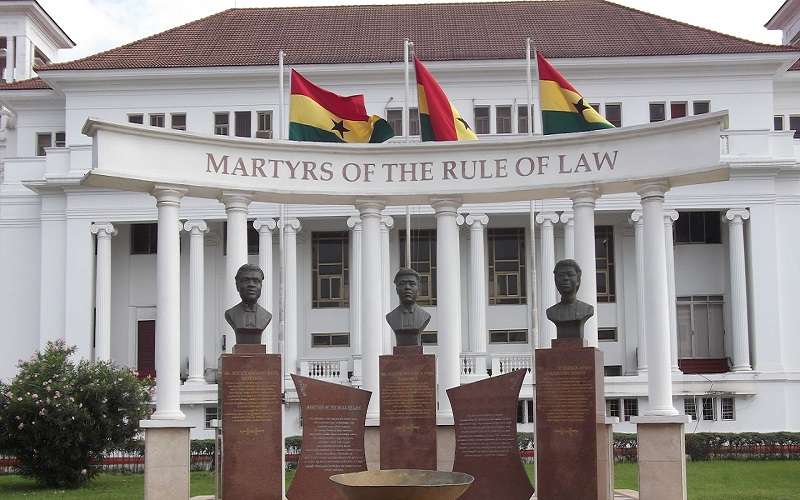
He also highlighted that the constitutional principle of double jeopardy, outlined in Article 19(2), serves two key purposes.
Prof. Asare noted that it protects individuals from harassment and persecution by the state and ensures closure for both the accused and society by providing finality in criminal proceedings. “Serial trials violate these purposes by allowing the state multiple opportunities to convict, transforming justice into a game of chance”.
He emphasized that justice should not mean “keep trying until a guilty verdict appears,” as this erodes public trust in the legal system and weakens constitutional protections.
Asare argued that jeopardy should be considered attached once the jury is impaneled or the first witness is sworn in, serving as an important safeguard against prosecutorial overreach.
Accordingly, he stressed that the state’s inability to secure a unanimous verdict should conclude the matter, not lead to endless retrials.
Prof. Asare emphasized that justice is not solely about securing convictions, but also about ensuring fairness in the process.
He pointed out that repeated retrials bring significant human and societal costs, including emotional and financial hardship for the accused and their families.
Additionally, Asare noted that they cause judicial inefficiency by burdening courts with redundant proceedings and lead to the erosion of evidence quality as witnesses may move, pass away, or lose clarity over time. “For victims, prolonged trials delay closure and compound their suffering”.
He argued that if a jury cannot reach unanimity, it indicates reasonable doubt, which should be respected rather than dismissed with repeated retrials.
Prof. Azar Asare Advocates for Fairness in Trials
Prof. Azar Asare argued that the framers of Ghana’s Constitution could not have intended to create a system that gives the state endless opportunities to secure a conviction, subjecting defendants to prolonged prosecution.
He noted that by interpreting jeopardy to attach when the jury is impaneled or the first witness is sworn in, the court protects finality, upholds the principle of double jeopardy, reinforces the presumption of innocence, and ensures a fair balance of power between the state and the individual.

He emphasized that this interpretation guarantees that criminal trials are conducted fairly, efficiently, and with respect for constitutional rights.
“A justice system that permits serial trials in pursuit of unanimity risks unraveling its own foundations. It transforms the presumption of innocence into a hollow ideal, making repeated prosecution an instrument of state power.
“To restore balance and fairness, the Constitution must be interpreted to attach jeopardy at the earliest critical stage—when the jury is impaneled or the first witness is sworn. At that point, the state has its one fair opportunity to meet its burden of proof. If it fails to secure unanimity, justice demands that the accused be released from further jeopardy”.
Prof. Kwaku Azar Asare
He emphasized that this is not merely a legal technicality, but a critical issue for protecting the integrity of Ghana’s justice system and safeguarding individual rights.
Prof. Asare called on the Bar, the judiciary, and the legal academy to advocate for a constitutional interpretation that upholds fairness, finality, and the protection of liberty. “As Justice Sowah so wisely observed, the Constitution must be interpreted with ‘a broad and liberal spirit’”.
He emphasized that it must function as a dynamic instrument that embodies the collective aspirations of the people for justice, fairness, and progress.
READ ALSO: Analyst Predicts Bull Run on Ghana’s Stock Market to Continue Through 2025




